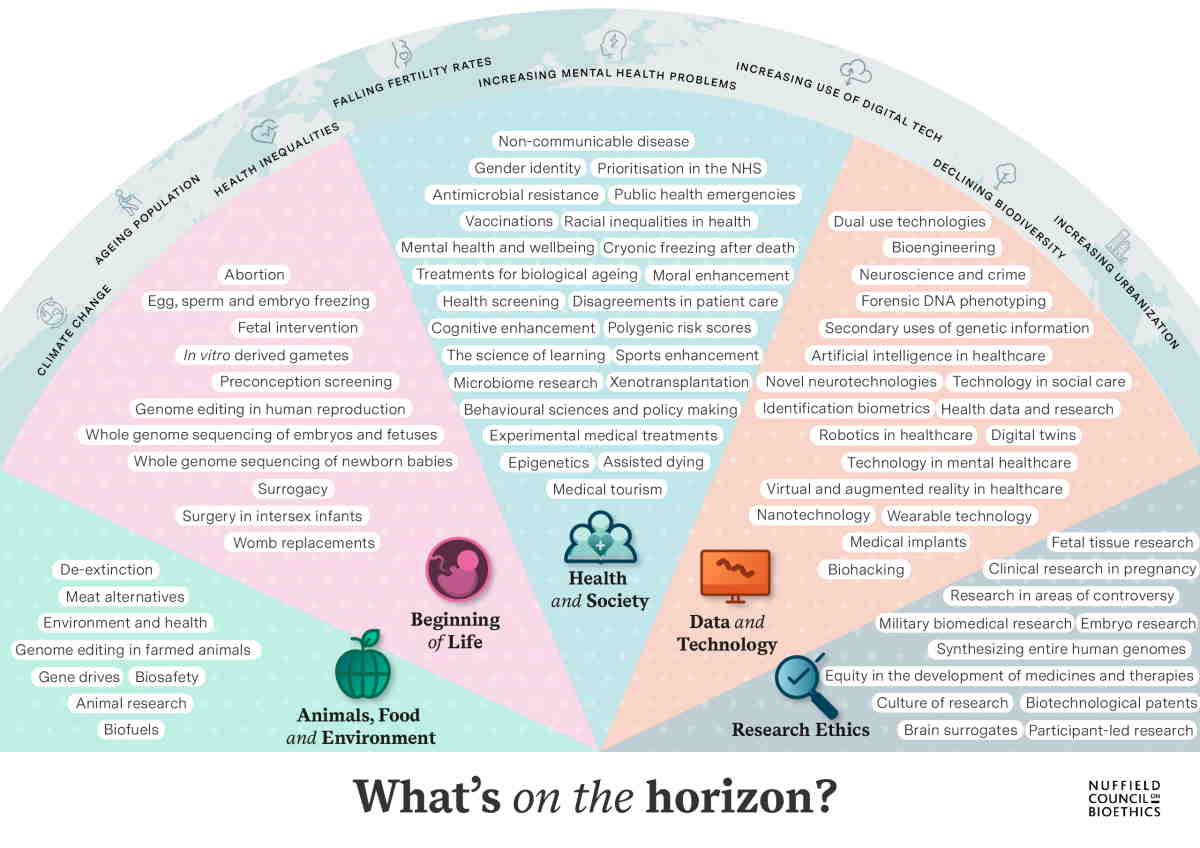Aggregated News

Would the use of artificial wombs during pregnancy change the nature of parenthood? Can genomic analysis be used to accurately predict whether someone is likely to develop a common disease later in life? Should brain scans be used to assess whether someone is likely to commit a crime or reoffend?
These are just some of the topics identified in a new infographic, published today by the Nuffield Council on Bioethics. The infographic illustrates a wide range of developments related to biological and medical research that are likely to raise ethical issues in the near or far future.
View an interactive version of the infographic - you can click on each of the topics to explore some of the ethical issues they may raise.
An important role of the Council is to anticipate upcoming developments related to biological and medical research and how they might impact on society. We undertake a range of horizon scanning activities throughout the year. These involve engaging with a diversity of organisations and individuals, and monitoring literature and news across different fields of interest and...



